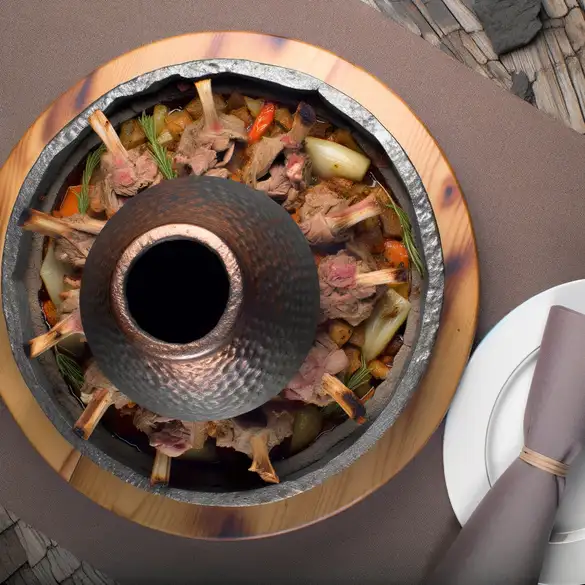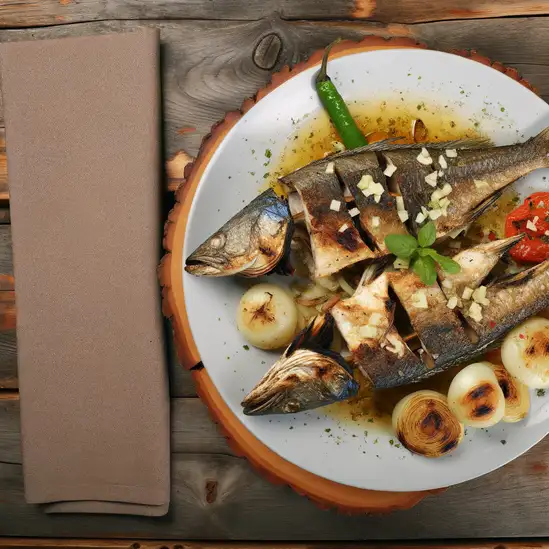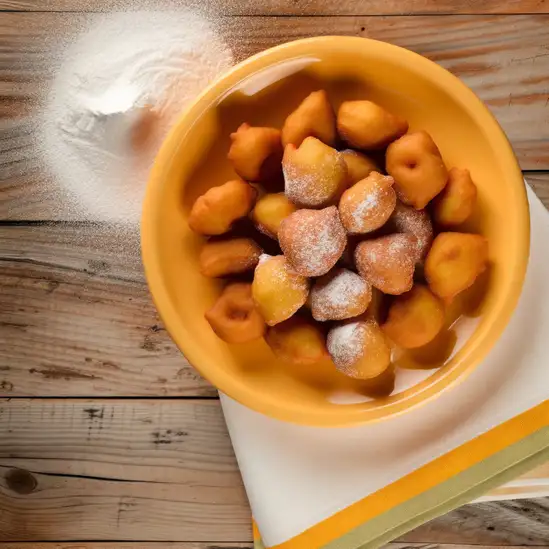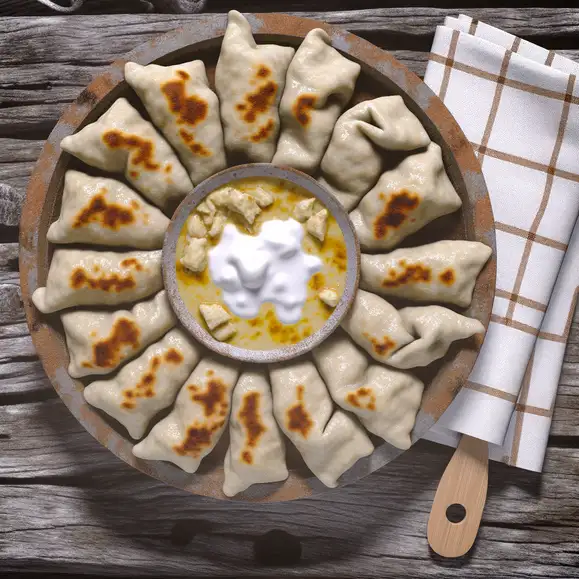



If you ever find yourself craving a blend of laid-back coastal charm and vibrant local life,Crikvenica in Croatia is where you want to be. The moment you step onto its sun-dappled promenade,the salty breeze carries the laughter of families and the gentle clinking of café cups. It’s a place where the Adriatic Sea shimmers in shades of turquoise and sapphire,inviting you to dip your toes or simply sit back and watch the fishing boats bobbing lazily on the horizon. Walking through Crikvenica’s streets,you’ll catch the scent of freshly baked pastries mingling with the briny air,and the hum of friendly chatter spilling out from cozy taverns. The town pulses with a warm,welcoming energy—locals greet you with genuine smiles,and there’s a rhythm to life here that feels both relaxed and alive. You can savor fresh seafood caught that morning,paired with a glass of crisp Croatian white wine,while the sun sets in a blaze of pink and gold. What makes Crikvenica truly special is its balance:it’s lively without being overwhelming,historic without feeling stuck in the past. You can explore charming old churches and quaint shops,then lose yourself in the lush greenery of nearby parks or along the pebble beaches. It’s a place that invites you to slow down,breathe deeply,and soak in the simple pleasures of sea,sun,and genuine hospitality.
The information on this page is currently being reviewed by Tripkliq and should be used as a guide only
Eng word: Hello
Eng pronunciation: Bohk
Local language: Bok
Eng word: Goodbye
Eng pronunciation: Doh-vee-jen-ya
Local language: Doviđenja
Eng word: Thank you
Eng pronunciation: Hvah-lah
Local language: Hvala
Eng word: How much
Eng pronunciation: Koh-lee-koh
Local language: Koliko
Eng word: Toilet
Eng pronunciation: Toh-ah-let
Local language: Toalet
Eng word: Help me
Eng pronunciation: Poh-moh-zee mee
Local language: Pomozi mi
Eng word: Yes
Eng pronunciation: Dah
Local language: Da
Eng word: No
Eng pronunciation: Neh
Local language: Ne
Eng word: Excuse me
Eng pronunciation: Oh-proh-stee-teh
Local language: Oprostite
Crikvenica's history dates back to ancient times, with evidence of Roman settlements in the area. The remains of Roman villas and artifacts have been discovered, showcasing the city's long-standing historical significance.
The name 'Crikvenica' is derived from the Croatian word 'crkva,' meaning 'church.' This name was inspired by the Church of the Assumption of the Blessed Virgin Mary, which was built by the Frankopan family in the 15th century.
The Frankopan family, one of Croatia's most influential noble families, played a significant role in Crikvenica's history. They built the monastery and the church that became central to the town's development.
The Crikvenica Monastery, established in the 15th century by the Frankopan family, is a key historical landmark. It has served various purposes over the centuries, including as a hospital and a school.
Crikvenica has been a popular tourist destination since the late 19th century. The first hotel, Hotel Therapia, was built in 1895 and is still in operation today, offering a glimpse into the city's long-standing hospitality tradition.
Crikvenica is renowned for its health tourism, thanks to its mild climate, clean air, and therapeutic sea mud. The city has been a health resort since the early 20th century, attracting visitors seeking wellness and relaxation.
The Crikvenica Riviera, a stretch of beautiful beaches and clear Adriatic waters, has been a major draw for tourists. The well-maintained promenades and parks add to the charm, making it a perfect destination for leisure and recreation.
Crikvenica hosts various cultural festivals throughout the year, celebrating its rich heritage. The Fishermen's Week, held annually, is one of the most popular events, featuring traditional music, dance, and cuisine.
The Crikvenica Aquarium, located in the city center, offers visitors a chance to explore the diverse marine life of the Adriatic Sea. It is a popular attraction for families and marine enthusiasts.
In Crikvenica, the most common Power Adaptor is Type C, Type F.



A traditional dish made of meat and vegetables, slow-cooked under a bell-like lid, resulting in tender and flavorful meals.

Grilled fish, typically served with a drizzle of olive oil and lemon, highlighting the region's fresh catch.

Small, sweet doughnuts flavored with citrus and often dusted with powdered sugar, a popular dessert in the region.

A pastry filled with cheese, either baked or boiled, often served as a savory dish or dessert.

Cabbage rolls stuffed with minced meat and rice, cooked in a savory tomato sauce, popular in Croatian cuisine.

A traditional Dalmatian beef stew, marinated in vinegar and spices, slow-cooked with prunes and served with gnocchi.

Local shrimp dish, often grilled or sautéed, showcasing the fresh seafood of the Adriatic Sea.
If you ever find yourself wandering through Split,it’s like stepping into a living,breathing storybook where ancient history and vibrant modern life dance together effortlessly. The moment you stroll along the Riva promenade,the salty breeze from the Adriatic mingles with the aroma of fresh espresso and grilled seafood wafting from nearby cafés. Locals chat animatedly in the sun-dappled squares,their laughter blending with the distant hum of boats bobbing gently in the harbor. There’s a laid-back energy here that feels both timeless and alive,inviting you to slow down and soak it all in.
Split’s heart beats strongest in Diocletian’s Palace,a sprawling Roman fortress that’s less a museum and more a neighborhood where people live,shop,and gather. Walking through its ancient stone alleys,you’ll catch glimpses of colorful markets,artisan shops,and cozy taverns tucked into centuries-old walls. At night,the city transforms as lanterns flicker on,and the sound of live klapa singing—traditional a cappella harmonies—drifts through the air,wrapping you in a warm,soulful embrace.
What really makes Split unforgettable is how effortlessly it blends the old with the new. You can savor a plate of fresh octopus salad while watching fishermen haul in their catch,then wander to a rooftop bar for a cocktail as the sun sets behind the islands. It’s a place where every corner tells a story,every meal feels like a celebration,and every moment invites you to become part of its ongoing tale.
If you ever find yourself wandering through the sun-drenched streets of Dubrovnik,you’ll immediately feel like you’ve stepped into a living storybook. The city’s ancient stone walls rise proudly against the sparkling Adriatic,and as you stroll along the marble-paved Stradun,the salty sea breeze mingles with the scent of fresh pine and blooming bougainvillea. There’s a rhythm here—a gentle hum of life where history and modern charm dance together effortlessly.
Dubrovnik’s character is woven into every corner:the clatter of café cups,the murmur of locals chatting in cozy taverns,and the distant call of seagulls overhead. You can almost taste the city in the air—briny and fresh,with hints of grilled seafood and ripe figs from the markets. Sitting at a seaside restaurant,watching the sun dip behind the fortress walls,you’ll savor dishes bursting with Mediterranean flavors,paired with a glass of crisp Croatian white wine.
What makes Dubrovnik truly special is how it balances its rich past with a vibrant present. The city’s narrow alleys invite exploration,revealing tucked-away galleries,artisan shops,and lively squares where music spills out into the streets. Whether you’re tracing the footsteps of ancient mariners or simply soaking up the golden light on a quiet terrace,Dubrovnik feels like a warm embrace—inviting,timeless,and utterly unforgettable.
If you ever find yourself wandering the Dalmatian coast,Zadar is one of those places that sneaks up on you with its quiet charm and unexpected magic. The moment you step onto its ancient stone streets,there’s this warm,timeless feeling—like the city is gently humming a tune just for you. The salty breeze from the Adriatic mingles with the scent of fresh pine and blooming jasmine,wrapping around you as you stroll along the waterfront. It’s a place where history isn’t just in museums; it’s alive in the crumbling Roman ruins,the medieval churches,and the lively squares where locals gather to chat and sip coffee.
What really sets Zadar apart is its playful spirit. You’ll hear it in the waves as they dance through the Sea Organ,an extraordinary installation that turns the sea’s movement into haunting melodies. And just a few steps away,the Sun Salutation lights up the night with a mesmerizing display of colors,making the waterfront feel like a celebration of nature and art. Grab a seat on the stone benches,watch the sun dip below the horizon,and you’ll understand why Alfred Hitchcock once called Zadar the most beautiful sunset in the world.
The city’s vibe is relaxed but vibrant,with cozy konobas serving up fresh seafood and local wines that taste like the essence of the region. Whether you’re wandering through the bustling market,exploring narrow alleys,or simply soaking in the views from a café terrace,Zadar invites you to slow down,breathe deeply,and savor every moment.
If you ever find yourself wandering the sun-drenched coast of Croatia,Pula is the kind of place that wraps around you like a warm,familiar blanket. There’s this effortless charm in the air—ancient stone walls bathed in golden light,the salty breeze carrying the distant hum of boats and laughter from seaside cafes. Walking through Pula feels like stepping into a living history book,but one that’s vibrantly alive with locals chatting over espresso and the clinking of glasses filled with crisp,local wine.
The city’s Roman amphitheater is impossible to miss,standing proudly as a testament to centuries past,yet it pulses with modern energy during summer concerts and festivals. Strolling through the narrow streets,you’ll catch the scent of fresh seafood grilling nearby,mingling with the earthy aroma of pine trees from the surrounding hills. It’s a place where time slows just enough for you to savor a plate of black risotto or sip on a cold craft beer while watching the sun dip into the Adriatic.
What really makes Pula special is its blend of rugged coastal beauty and warm,unpretentious spirit. The locals have a relaxed vibe,welcoming you with genuine smiles and stories about their city’s layered past. Whether you’re exploring Roman ruins,lounging on a pebble beach,or simply people-watching in a bustling square,Pula invites you to soak in its rich culture and easygoing rhythm. It’s a city that stays with you long after you’ve left,whispering tales of history,sea,and sun.
If you wander into Šibenik,you’ll immediately feel like you’ve stepped into a place where history and the sea have been quietly chatting for centuries. The city’s old stone streets,worn smooth by footsteps over hundreds of years,invite you to slow down and soak in the atmosphere. There’s a gentle hum of life here—fishermen unloading their catch,the clinking of glasses from cozy waterfront cafés,and the distant call of seagulls mingling with the soft splash of waves against the harbor walls.
What makes Šibenik truly special is its blend of rugged Adriatic charm and rich cultural layers. The sun warms the limestone walls,making them glow golden in the late afternoon,while the scent of pine trees drifts in from the nearby hills. You can’t miss the stunning Cathedral of St. James,a masterpiece carved entirely from stone,where every detail tells a story. Wander through the narrow alleys,and you’ll find vibrant markets bursting with fresh figs,olives,and local cheeses that taste like sunshine.
Evenings in Šibenik have a relaxed,almost magical feel. The city lights flicker on,reflecting in the calm waters,and the air fills with the aroma of grilled seafood and herbs. Locals gather in lively taverns,sharing laughter and stories over glasses of crisp Croatian wine. It’s a place where time slows just enough for you to savor the simple pleasures—good food,warm smiles,and the endless blue horizon.
If you wander into Rijeka,you’ll immediately feel its pulse—a lively,salty breeze mingling with the hum of a bustling port city that’s unapologetically itself. It’s not polished like some of Croatia’s more famous coastal towns,but that’s exactly what makes it so magnetic. The streets buzz with a mix of locals chatting over coffee,the clatter of trams,and the occasional distant call of seagulls. You can almost taste the sea in the air,a briny freshness that pairs perfectly with a glass of local Malvazija wine at a cozy café.
Rijeka wears its history on its sleeve,from the grand Austro-Hungarian architecture to the colorful street art that pops up in unexpected corners. The city’s character is a blend of old-world charm and modern creativity,with a vibrant arts scene that spills into its festivals and galleries. Strolling along the waterfront,you’ll catch fishermen unloading their catch,the scent of grilled fish wafting from nearby taverns,and the laughter of families enjoying the evening.
What really sticks with you is Rijeka’s warmth—people here are genuine,proud of their city’s quirks and stories. Whether you’re exploring the lively market,climbing up to Trsat Castle for sweeping views,or simply soaking in the rhythm of the harbor,Rijeka invites you to slow down and savor its unique blend of sea,culture,and everyday life. It’s a place that feels like a well-kept secret,but one you’ll want to shout about once you’ve been.
Tourists may be offered unfavorable exchange rates or charged hidden fees at unauthorized currency exchange offices.
Scammers may post fake rental properties online, asking for deposits before the tourist arrives, only for the property to not exist.
Unlicensed individuals may pose as tour guides, offering subpar or inaccurate tours for high fees.
Some taxi drivers may overcharge tourists by not using the meter or taking unnecessarily long routes.
Tourists may be directed to unofficial parking areas by scammers who charge high fees, only for the car to be towed later.
In crowded tourist areas, pickpockets may target unsuspecting visitors, especially in markets or during events.
Some restaurants may inflate bills by adding items not ordered or charging excessive 'service fees' for tourists.
Vendors may sell counterfeit goods or overcharge tourists for low-quality items.
The possession, use, and distribution of illegal drugs are strictly prohibited in Crikvenica, Croatia. Croatia has stringent drug laws, and violations can result in severe penalties, including fines and imprisonment. Tourists should avoid any involvement with illegal drugs to ensure a safe and trouble-free visit.
In Crikvenica, Croatia, smoking is generally allowed in outdoor public spaces. However, smoking is prohibited in enclosed public areas such as restaurants, bars, and public transportation. Some establishments may have designated smoking areas. It is always a good idea to look for no-smoking signs and adhere to local regulations to avoid fines.
Vaping in Crikvenica follows similar regulations to smoking. It is generally allowed in outdoor public spaces but prohibited in enclosed public areas. Some establishments may have specific policies regarding vaping, so it is advisable to check for any signs or ask staff members if you are unsure.
What are other people saying about Crikvenica?
Recent Social posts about Crikvenica
There is nothing to show you for now.